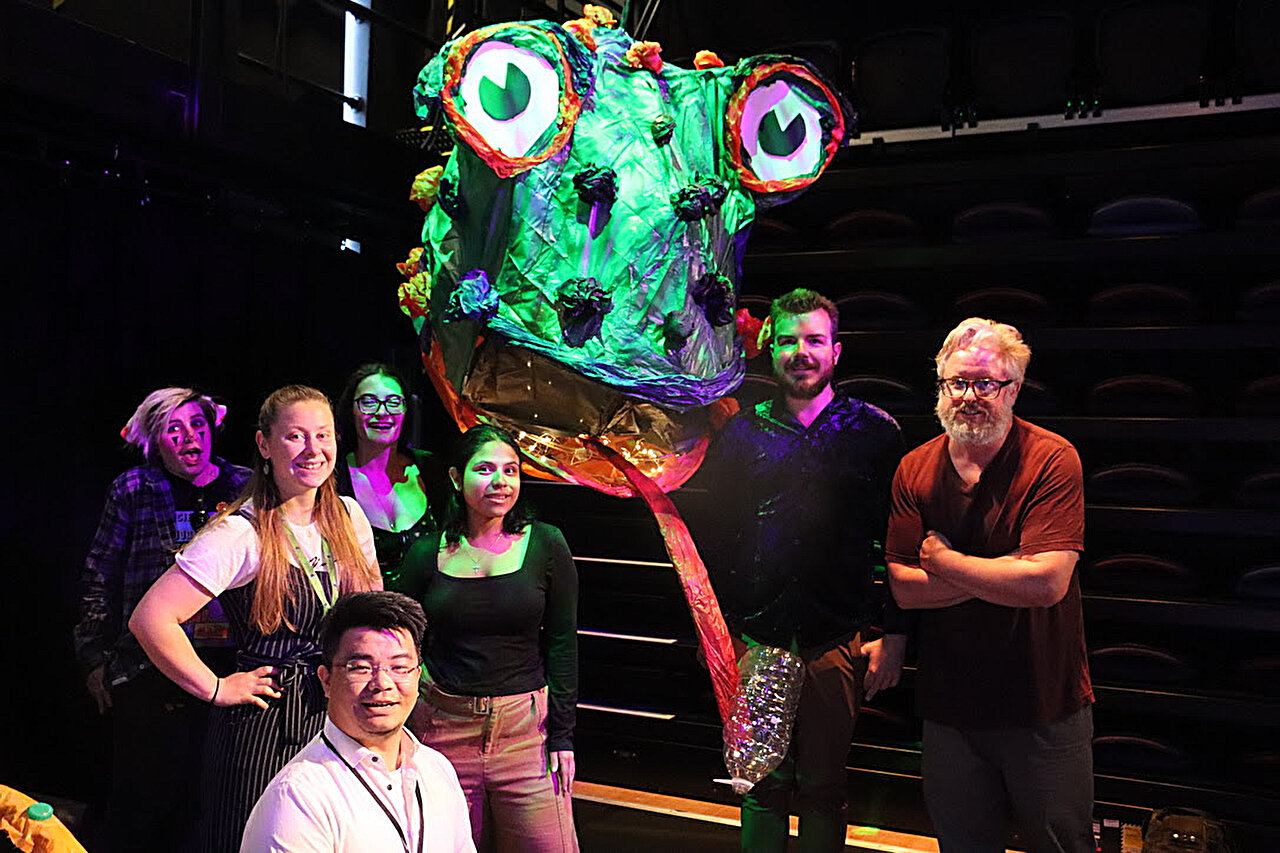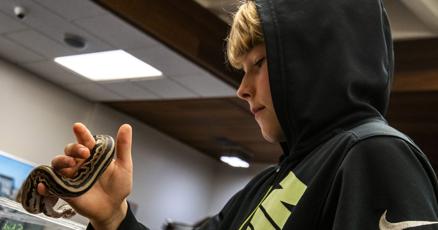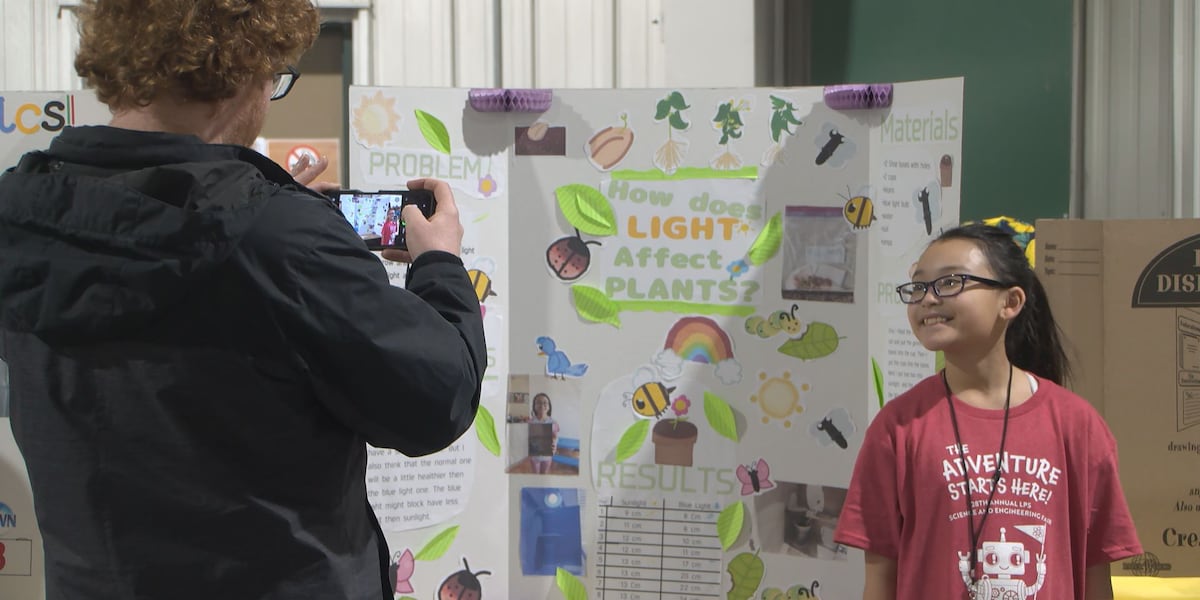Driving Innovation: Computer Science Prof Lands $4M to Revolutionize Rural Transportation Tech
Science
2025-03-26 18:36:22Content

Dr. Anirudh Paranjothi, an innovative assistant professor in Oklahoma State University's Department of Computer Science, has secured groundbreaking research funding totaling over $4 million to advance autonomous vehicle technology in rural and tribal communities.
As co-principal investigator of the Tribal & Rural Autonomous Vehicles for Equity, Livability, and Safety (TRAVELS) project, Dr. Paranjothi is collaborating with Dr. Joshua Li from the College of Engineering, Architecture and Technology to develop cutting-edge transportation solutions for underserved regions.
The substantial grants will support critical research aimed at improving mobility, safety, and accessibility for rural and tribal populations through state-of-the-art autonomous vehicle technologies. By focusing on these often-overlooked communities, the research team seeks to bridge transportation gaps and create more equitable mobility options.
This pioneering initiative promises to transform transportation infrastructure and provide innovative mobility solutions that can significantly enhance quality of life in rural and tribal areas across the United States.
Revolutionizing Rural Mobility: Groundbreaking Autonomous Vehicle Research Transforms Transportation Equity
In the rapidly evolving landscape of transportation technology, a pioneering research initiative is set to redefine mobility solutions for underserved communities. By bridging technological innovation with social inclusivity, researchers are pushing the boundaries of autonomous vehicle development in regions traditionally overlooked by mainstream technological advancements.Driving Change: Innovative Research Promises Transformative Transportation Solutions
Navigating Technological Frontiers in Rural and Tribal Landscapes
Autonomous vehicle technology represents a paradigm shift in transportation infrastructure, particularly for rural and tribal communities that have historically faced significant mobility challenges. The research led by Dr. Anirudh Paranjothi and Dr. Joshua Li represents a critical intersection of technological innovation and social equity. By developing specialized autonomous vehicle systems tailored to unique geographical and infrastructural constraints, the project aims to address fundamental transportation disparities. The complexity of designing autonomous vehicles for rural environments cannot be understated. Unlike urban landscapes with well-defined road networks and infrastructure, rural and tribal areas present multifaceted challenges that demand sophisticated technological solutions. Researchers must account for unpredictable terrain, limited road maintenance, diverse environmental conditions, and complex cultural considerations specific to tribal regions.Technological Innovations Driving Mobility Transformation
The comprehensive research initiative, dubbed "Tribal & Rural Autonomous Vehicles for Equity, Livability, and Safety" (TRAVELS), represents a multimillion-dollar investment in reimagining transportation accessibility. With over $4 million in grant funding, the project demonstrates a significant commitment to developing cutting-edge autonomous vehicle technologies that can adapt to diverse and challenging environments. Advanced sensor technologies, machine learning algorithms, and robust navigation systems are being meticulously developed to ensure safe and reliable transportation solutions. These technologies go beyond traditional autonomous vehicle design, incorporating nuanced understanding of local geographical and cultural contexts that have previously been overlooked in transportation research.Socioeconomic Impact and Community Empowerment
The potential societal implications of this research extend far beyond technological achievement. By providing reliable, accessible transportation solutions, the project aims to address critical mobility challenges that have long hindered economic opportunities and social connectivity in rural and tribal communities. Autonomous vehicles could revolutionize healthcare access, educational opportunities, and economic participation for populations traditionally marginalized by transportation limitations. The research represents a holistic approach to technological development, viewing transportation not merely as a technical challenge but as a fundamental tool for social empowerment and community development.Collaborative Research and Interdisciplinary Approach
The collaboration between Oklahoma State University's Computer Science Department and the College of Engineering, Architecture and Technology exemplifies the power of interdisciplinary research. By combining expertise from multiple domains, researchers can develop more comprehensive and nuanced technological solutions that address complex societal challenges. This approach ensures that technological innovations are not developed in isolation but are deeply rooted in understanding local contexts, community needs, and potential real-world applications. The research methodology emphasizes participatory design, engaging directly with rural and tribal communities to ensure that technological solutions are genuinely responsive to their unique requirements.RELATED NEWS
Science

Shots Fired: The Centuries-Long Battle Between Science and Vaccine Skeptics
2025-04-29 20:35:00
Science

Puppet Masters of Science: How Sock Puppets Are Unraveling Enzyme Mysteries
2025-04-17 13:30:04






